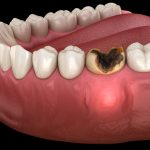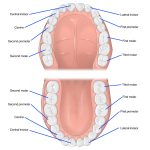Healthy Smile 101: How Often to Get Teeth Cleaned for Optimal Dental Care
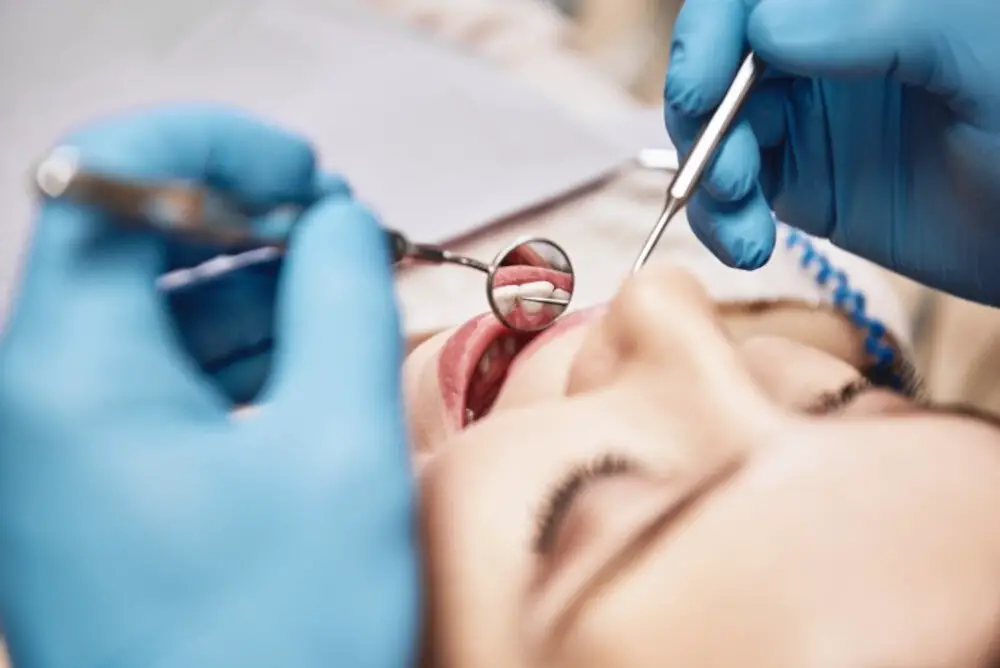
A healthy smile is not just a cosmetic necessity, but it also contributes to overall well-being. Dental hygiene is a crucial aspect of maintaining oral health. Brushing and flossing daily are essential habits to keep your teeth and gums healthy, but sometimes they may not suffice. Regular dental cleanings are a vital part of preventative dental care that can help keep your teeth and gums healthy and prevent more severe dental problems. A dental cleaning, also known as prophylaxis, is a professional cleaning of your teeth by a dentist or dental hygienist. During the cleaning, the dentist or hygienist will remove plaque and tartar buildup from your teeth and gums, which will prevent gum disease and tooth decay. The cleaning process also includes polishing the teeth to remove any surface stains and to make them look brighter. But how often should you get your teeth cleaned? Let’s delve into the topic of dental cleaning and discuss how frequently you should visit your dentist for optimal dental care.
Maintaining good dental hygiene is essential for overall health. Teeth cleaning is a crucial part of dental care that helps to prevent tooth decay, gum disease, and other dental problems. Regular cleaning removes plaque buildup, which can lead to cavities and gum disease. Neglecting dental hygiene can result in tooth loss, bad breath, and a host of other health problems. It is recommended that individuals get their teeth cleaned every six months to ensure optimal dental health. A healthy smile not only improves appearance but also boosts self-confidence and overall quality of life. Therefore, it is important to make teeth cleaning a priority in your dental care routine.
The article \Healthy Smile 101: How Often to Get Teeth Cleaned for Optimal Dental Care\ purpose is to provide readers with an in-depth understanding of the importance of regular teeth cleaning for maintaining good oral health. The article explains the recommended frequency of dental cleanings, which is typically every six months, and highlights the benefits of scheduling regular dental check-ups, including the prevention of gum disease, cavities, and bad breath. The article also discusses the various factors that can influence the need for more frequent dental cleanings, such as smoking, pregnancy, and certain medical conditions. Overall, the article emphasizes the significance of regular dental cleanings as part of a comprehensive oral care routine to keep your smile healthy and bright.
Understanding Teeth Cleaning
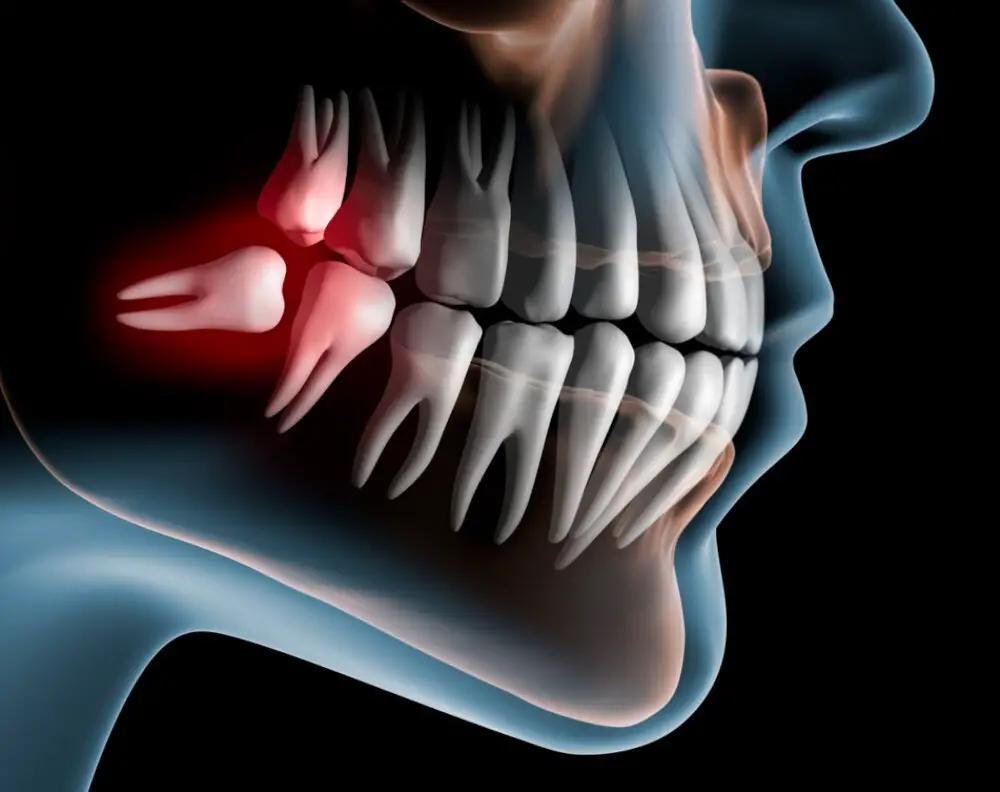
Maintaining good oral hygiene is essential for maintaining overall health and well-being. One of the most important aspects of oral hygiene is teeth cleaning. Understanding the importance of teeth cleaning and how often it should be done can help you maintain healthy teeth and gums. Teeth cleaning is the process of removing plaque and tartar buildup on the teeth. Plaque is a sticky film that forms on teeth due to the combination of bacteria, food particles, and saliva. If plaque is not removed, it can harden into tartar, which can lead to tooth decay and gum disease. Teeth cleaning involves using special tools to remove plaque and tartar from the teeth, including scaling and polishing. Regular teeth cleaning can help prevent gum disease, tooth decay, and bad breath. The frequency of teeth cleaning depends on several factors, including age, overall health, and lifestyle. For most people, it is recommended to have a teeth cleaning every six months. However, some people may require more frequent cleanings, such as those with a history of gum disease or those who smoke. It is important to consult with your dentist to determine the appropriate frequency of teeth cleaning for your individual needs. Maintaining good oral hygiene habits at home, such as brushing and flossing regularly, can also help prevent the buildup of plaque and tartar on the teeth. By understanding the importance of teeth cleaning and following a regular cleaning schedule, you can maintain healthy teeth and gums for a lifetime.
Teeth cleaning is the process of removing plaque and tartar buildup from the teeth and gums. This procedure is necessary to maintain healthy oral hygiene and prevent dental problems such as cavities, gum disease, and bad breath. Regular teeth cleaning sessions not only improve the appearance of one’s smile but also contribute to overall health. The buildup of plaque and tartar can lead to bacterial infections and inflammation of the gums, which can ultimately result in tooth loss. Therefore, it is recommended that individuals get their teeth cleaned by a dental professional at least twice a year to ensure optimal dental care.
There are several methods of teeth cleaning that can be employed for optimal dental care. Brushing with a toothbrush and toothpaste is the most common method, which involves removing plaque and stains from the teeth’s surfaces and along the gum line. Flossing is another essential method that helps remove food debris and plaque from between the teeth and underneath the gum line. Mouthwash can also be used as a supplementary method to freshen breath and reduce bacteria in the mouth. Professional teeth cleaning performed by a dental hygienist or dentist is the most effective method, as it involves removing tartar and plaque buildup that cannot be removed by brushing or flossing alone. The frequency of professional teeth cleaning depends on individual needs and oral health status.
Frequency of Teeth Cleaning
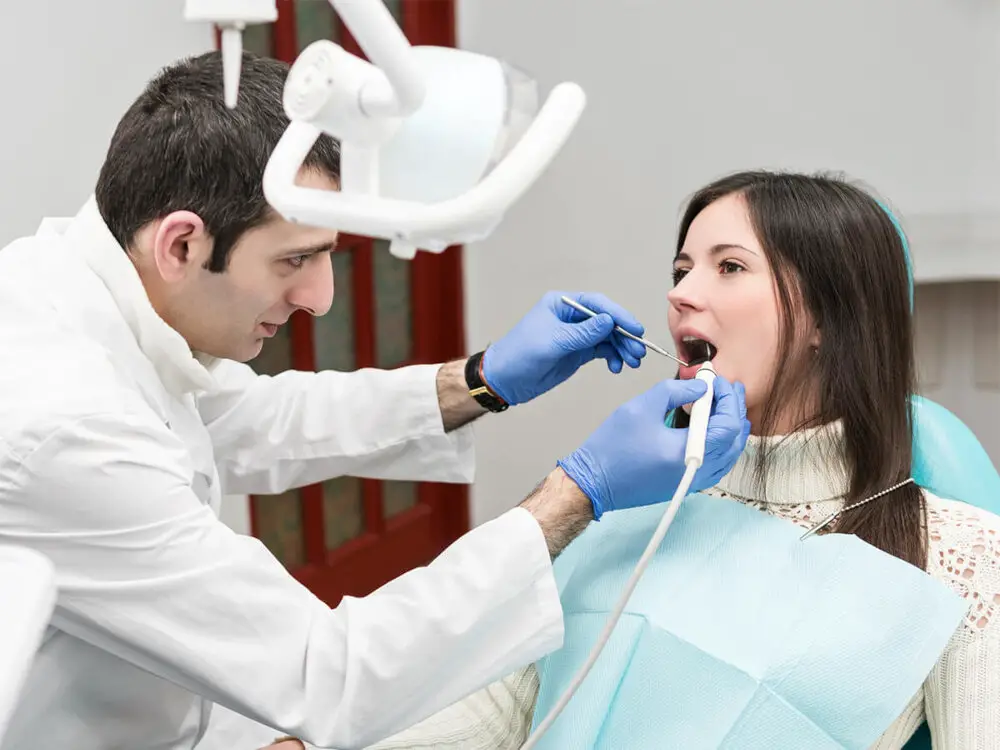
Maintaining good oral hygiene is crucial for the overall health of an individual. Teeth cleaning is an integral part of oral hygiene, and it is essential to keep the teeth and gums healthy. The frequency of teeth cleaning depends on various factors, such as diet, age, lifestyle, and dental history. In general, it is recommended to get teeth cleaned at least twice a year, or every six months. However, some individuals may require more frequent cleaning, such as those who have gum disease, a history of cavities, or a weakened immune system. Regular teeth cleaning helps to remove plaque and tartar buildup, which can cause gum disease, cavities, and bad breath. During a cleaning, a dental professional will use specialized tools to remove any buildup of bacteria, food particles, and plaque from the teeth and gums. They will also check for any signs of gum disease, cavities, or other issues that may require further treatment. By getting teeth cleaned regularly, individuals can prevent dental problems from developing and maintain optimal oral health. Additionally, teeth cleaning can help to brighten and whiten the teeth, giving individuals a brighter, healthier-looking smile.
Maintaining good oral health is essential for overall well-being, and regular dental cleaning plays a crucial role in achieving it. The frequency of teeth cleaning required for optimal dental care depends on various factors, including individual oral hygiene habits, diet, and genetics. Generally, it is recommended to get teeth professionally cleaned twice a year or every six months. However, if you have a history of gum disease, have dental braces, or are prone to developing plaque and tartar buildup, your dentist may recommend more frequent cleanings. Regular dental cleanings can help prevent cavities, gum disease, and other dental problems, ensuring that you maintain a healthy smile for years to come.
There are several factors that can impact how often teeth should be cleaned for optimal dental care. First and foremost, it depends on an individual’s oral health and hygiene habits. Those who brush and floss regularly and have a healthy diet may only need a professional cleaning every six months. However, those with poor oral hygiene habits or certain health conditions, such as gum disease or diabetes, may need more frequent cleanings to maintain good oral health. Additionally, lifestyle factors such as smoking or drinking coffee or tea can stain teeth and require more frequent cleanings to keep them looking their best. Ultimately, it’s important to consult with a dentist to determine the appropriate cleaning schedule for each individual’s unique needs.
Signs That Teeth Need Cleaning

A healthy smile is the most attractive feature of a person; however, it is often neglected. Proper dental care is essential for healthy teeth and gums. One of the most crucial parts of dental care is regular teeth cleaning. Teeth cleaning helps to remove plaque, tartar, and stains from the teeth, which can lead to tooth decay and gum disease. Signs that teeth need cleaning include bad breath, yellow or brown stains on the teeth, and bleeding gums. Bad breath is a common sign that teeth need cleaning. When bacteria build up on the teeth and gums, they can produce an unpleasant odor. Brushing and flossing can help to remove the bacteria, but if the bad breath persists, it may be time for a professional teeth cleaning. Yellow or brown stains on the teeth are also a sign that teeth need cleaning. These stains can be caused by smoking, drinking coffee or tea, or poor dental hygiene. Regular teeth cleaning can remove these stains and restore the natural color of the teeth. Bleeding gums are another sign that teeth need cleaning. When plaque and tartar build up on the gums, they can cause inflammation and bleeding. Regular teeth cleaning can help to remove the plaque and tartar and prevent gum disease.
There are several signs that indicate the need for teeth cleaning. One of the most common signs is the discoloration of teeth due to the accumulation of plaque and tartar. Bad breath is another significant indicator that teeth need cleaning, as the buildup of bacteria in the mouth can cause unpleasant odors. Gum disease is also a sign that teeth need to be cleaned, as it can be caused by the buildup of plaque and tartar. Other signs include bleeding gums, sensitivity to hot and cold food and drinks, and a rough or fuzzy feeling on the teeth. Regular teeth cleaning appointments with a dental professional can help prevent these signs and promote optimal dental health.
Regular dental cleanings and check-ups are essential for maintaining a healthy smile. However, there are signs that may indicate the need for more frequent cleanings. These signs include bad breath, bleeding gums, tooth sensitivity, and visible plaque buildup. If you notice any of these signs, it is important to schedule an appointment with your dentist right away. During your appointment, your dentist will thoroughly clean your teeth and gums, removing any plaque or tartar buildup that may have accumulated. They will also provide you with tips and tricks for maintaining good oral hygiene at home, such as brushing twice a day and flossing daily. By staying on top of your dental health, you can ensure that your smile remains healthy and beautiful for years to come.
Benefits of Regular Teeth Cleaning
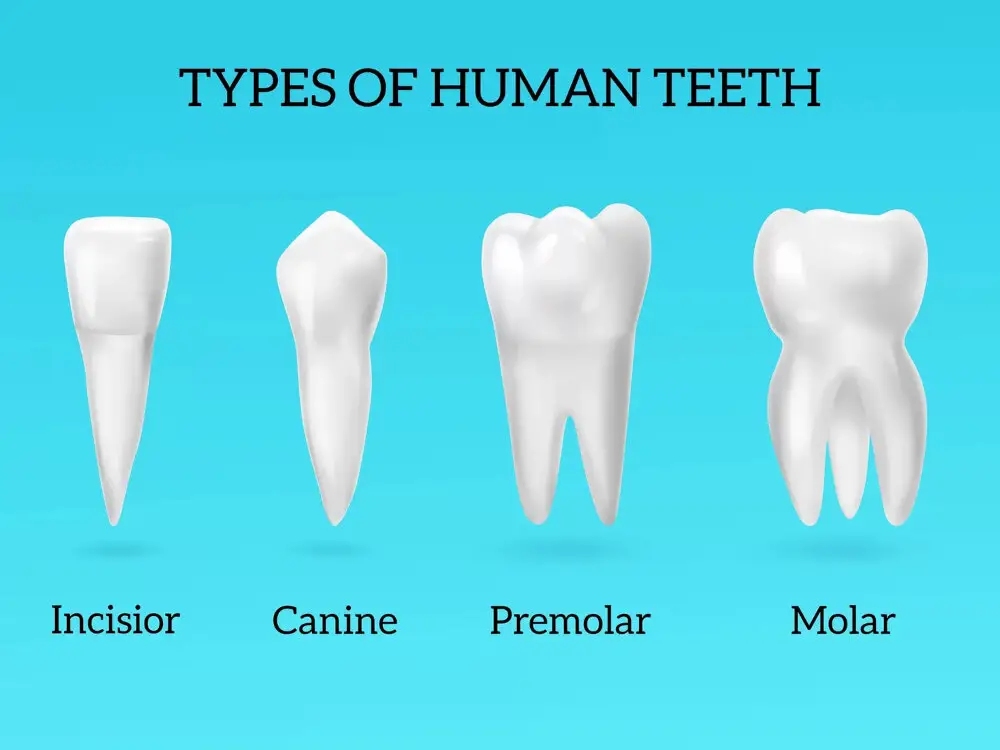
Regular teeth cleaning is essential for maintaining optimal dental health. A healthy smile not only enhances your appearance, but it also improves your overall well-being. Regular teeth cleaning ensures that your teeth are free of plaque and tartar buildup, which can cause tooth decay and gum disease. Furthermore, teeth cleaning removes surface stains, giving you a brighter, more radiant smile. By visiting your dentist for regular teeth cleaning, you can prevent dental problems before they become serious, saving you time and money in the long run. In addition to preventing dental problems, regular teeth cleaning provides other benefits. For instance, it can help you maintain fresh breath. Plaque and bacteria that build up on the teeth and gums can cause bad breath. By removing this buildup, teeth cleaning can help you maintain fresh breath. Moreover, regular teeth cleaning can help you detect dental problems early. During a teeth cleaning appointment, your dentist will examine your mouth for signs of cavities, gum disease, and other issues. Early detection and treatment of dental problems can prevent more serious problems from developing down the road.
Regular teeth cleaning is a crucial aspect of oral hygiene that contributes significantly to maintaining overall dental health. By visiting the dentist every six months for a cleaning, individuals can prevent tooth decay, gum disease, and bad breath. During a cleaning, the dentist will remove plaque and tartar buildup that cannot be removed by brushing and flossing alone. Additionally, regular cleanings can help detect and address any potential dental issues before they become more serious and expensive to treat. Proper dental care and hygiene can also lead to a brighter, whiter smile, which can boost an individual’s confidence and self-esteem. Overall, regular teeth cleaning is a fundamental component of achieving optimal dental care and maintaining a healthy smile.
Teeth cleaning is an essential part of maintaining oral health and preventing more severe dental issues. Plaque and tartar buildup can lead to gum disease, which, if left untreated, can cause tooth loss and other serious health problems. Regular dental cleanings can effectively remove the buildup of harmful bacteria and prevent cavities, gum disease, and other dental issues. Besides, dental hygienists can identify early signs of dental problems during the cleaning process, allowing for prompt treatment and prevention of further complications. Therefore, maintaining a regular teeth cleaning schedule is crucial, and it’s recommended to visit a dentist every six months for optimal dental care.
The article \Healthy Smile 101: How Often to Get Teeth Cleaned for Optimal Dental Care\ discusses the importance of maintaining good oral hygiene. The article highlights that regular dental cleaning appointments are crucial for keeping teeth and gums healthy. The American Dental Association recommends dental checkups and cleanings twice a year, but the frequency of dental cleanings may vary based on an individual’s oral health. The article emphasizes that regular dental cleanings can prevent gum disease, cavities, and other oral health problems. Additionally, the article provides tips on how to maintain good oral hygiene at home, including brushing and flossing regularly and maintaining a healthy diet. Overall, the article stresses the importance of regular dental cleanings and good oral hygiene practices for maintaining optimal dental care.
In conclusion, teeth cleaning is an essential component of maintaining optimal dental care. Regular dental check-ups and cleanings can help prevent dental problems such as cavities, gum disease, and tooth decay. Poor oral hygiene can lead to serious health issues such as heart disease, diabetes, and even some types of cancer. Brushing twice a day and flossing daily can help remove plaque and bacteria from the teeth and gums, but it is essential to schedule professional cleanings with a dentist or dental hygienist for a thorough cleaning and examination. Investing in your oral health can lead to a healthier, happier life and a beautiful, confident smile. Remember, taking care of your teeth is not just about a pretty smile; it’s about maintaining overall health and wellness.
Conclusion

In conclusion, maintaining a healthy smile requires more than just brushing and flossing regularly. Regular dental cleanings are an essential aspect of dental care that should not be overlooked. Depending on individual needs and susceptibility to dental issues, dentists may recommend getting teeth cleaned every 3-6 months. However, proper brushing and flossing techniques, as well as a healthy diet, can also play a significant role in overall dental health. Neglecting routine dental cleanings can lead to various dental issues, including cavities, gum disease, and tooth loss. Therefore, it’s crucial to prioritize regular dental cleanings to achieve optimal dental care and maintain a healthy smile for years to come.

